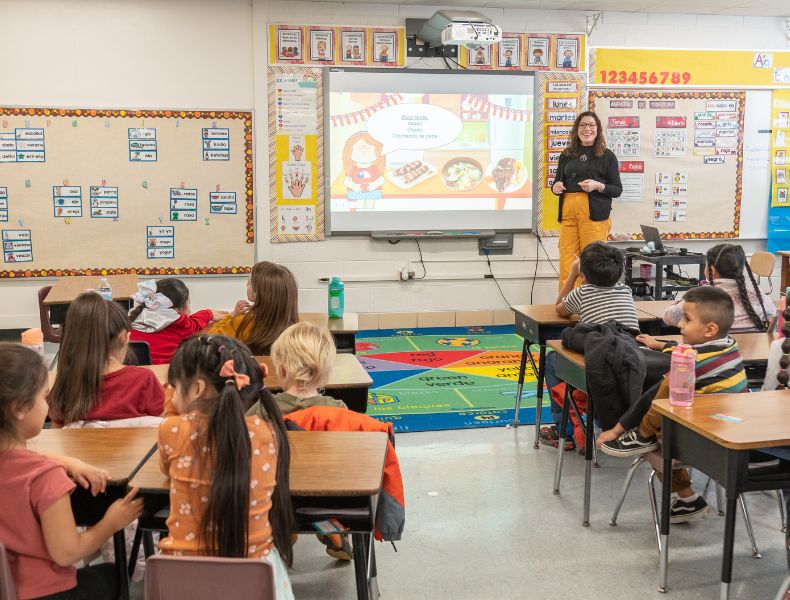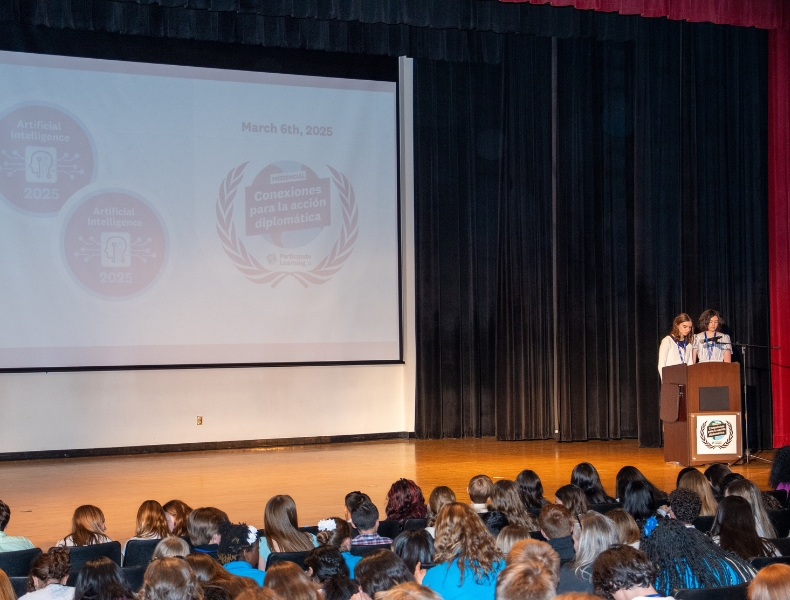International Children’s Book Day is April 2! With many of us experiencing at-home and remote learning for the first time, one of the best ways to keep students learning and engaged is through reading. The simple act of reading with your child can help them develop a lifelong skill that fosters independence, self-confidence, and a deeper understanding of the world around them.
Read on to learn more about five of the major benefits of cultivating a love of reading in students.
1. Reading expands vocabulary.
Reading exposes students to many new words that they have to sound out and learn the meaning of, which increases their ability to express thoughts more effectively. Having a greater base of vocabulary words makes students feel more confident not only in their reading skills but also in writing and speaking.
Effective communication is key in being successful in future years in school, in making friends and socializing, and in learning a second or even a third language! Students who can communicate well with others develop their global leadership because they are able to take agency in their lives. When students feel confident in their ability to communicate, they can take initiative on projects and advocate for themselves and others.
2. Reading improves theory of mind.
Theory of mind is the ability to attribute beliefs, desires, emotions, and knowledge to oneself and to others. It is the understanding that different people have different perspectives. Having students read stories from various outlooks helps them to visualize what they would do in a real-life situation like the one presented in a story.
This skill helps increase empathy and understanding toward others by exposing them to many situations through reading. Being empathetic toward others is a key component of being a global leader because it challenges students to be curious about the feelings of others and to find ways to show they care.
3. Reading sharpens memory.
Reading and comprehension require students to be able to engage their brains by collecting different words, scenes, and characters in a book to create a complete story. Reading and writing regularly helps to exercise the brain because these activities require students to recall and build on previous knowledge.
Additionally, reflecting on passages helps to develop global leadership in students because it requires them to focus on the important messages in a reading. Have students reflect after reading a book to figure out why the perspective of that story matters and put it in a global context. These skills go beyond just language arts and can support learning and understanding in all subjects.
4. Reading increases knowledge.
Books are available in many different reading levels in all kinds of subjects. The more students read, the more information and knowledge they have about historical and current affairs in the world around them. Students who have a solid foundation in different subjects are better prepared for a future in a competitive marketplace because they will be well-versed and ready to take on new tasks.
Beyond increasing general knowledge, encourage students to read about and explore topics that spark their personal interests. Building relevance to themselves makes it easier for students to connect events and topics from around the world to their own experiences.
5. Reading enhances imagination.
With many students staying at home for the foreseeable future, reading is a great way to keep them entertained. Reading allows students to step into new worlds and put themselves in the place of the protagonist. For instance, let them choose books that are set in different parts of the globe so they can learn about the experiences of people outside of the United States.
As they experience different perspectives and stories, students are building their global network and developing their own global leadership. Engaging their imaginations keeps them entertained at home and also introduces them to new cultures.
Take time this International Children’s Book Day and read a book with your student! Check out our global leadership framework to incorporate global learning into reading with your students.




